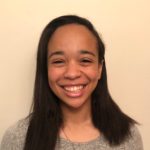PhD Student Lonnie Garrett given NNIS fellowship
The fellowship supports exceptional students in the field of international safeguards.
The fellowship supports exceptional students in the field of international safeguards.

NERS PhD student Lonnie Garrett has been given a Nuclear Nonproliferation International Safeguards (NNIS) Graduate Fellowship.
“I feel very honored and privileged to be selected for this fellowship,” said Lonnie. “I am looking forward to the opportunities and collaborations that will come out of it.”
According to the NNIS, this fellowship provides financial support for exceptional students pursuing technical doctoral research relevant to the field of international safeguards. Participating universities foster partnerships between science/engineering programs and programs focused on nuclear nonproliferation and safeguards policy. Armed with both deep technical expertise and policy understanding, NNIS Fellows are primed to take on the exciting and challenging work of international nuclear safeguards. The Department of Energy (DOE) National Nuclear Security Administration (NNSA) is the principal federal sponsor of the NNIS Graduate Fellowship Program.
“Lonnie has been an amazing addition to my research group,” said Igor Jovanovic, a NERS professor and Lonnie’s advisor. “She has demonstrated ingenuity and resourcefulness that greatly accelerated multiple experimental projects. She has already co-authored journal publications while also taking on several substantial teaching assignments. Lonnie is on a trajectory to become a prominent researcher and educator.”
Lonnie grew up in Columbia, Maryland, a suburb about halfway between Washington, DC and Baltimore. She completed her undergraduate studies at the University of Rochester in New York, where she studied chemical engineering. While at Rochester, she had the opportunity to do research at their Laboratory for Laser-Energetics. There, she was exposed to not only various optical spectroscopy methods but also nuclear engineering as a field. While going through literature, she found one of Jovanovic’s papers and decided to reach out to him to ask about his research. After communicating with him and visiting during the NERS Bootcamp, she applied to the department.
Lonnie’s research thus far has focused primarily on understanding how laser-induced breakdown spectroscopy can be used in environments relevant to advanced reactor systems. Currently, she’s working on two projects which fall under this umbrella. The first aims to use double-pulse LIBS to lower the limit of detection associated with sensing trace concentrations of xenon in an ambient helium environment. This work is relevant to the detection of fuel cladding failure in high-temperature gas reactors. The other project aims to determine how changes in glass linear absorption due to radiation damage would affect the obtained results from LIBS or other optical spectroscopy measurements.
At NERS, Lonnie is one of the Detroit-Area Pre-College Engineering Program (DAPCEP) Assistant Instructors and assists with teaching and lesson planning for our “Glow Blue” course which introduces 7th–9th graders to basic concepts of nuclear engineering. She’s also on our Graduate Student Council and has recently been involved in the efforts to revamp the GSC led by Robby Renfrow. The council is seeking to create a better connection between students and faculty as well as plan activities to help foster a sense of community throughout the department. This year she served as the vice president of the U-M Institute of Nuclear Materials Management (INMM) Student Chapter and was involved in helping plan events and speaker engagements. This past fall, Lonnie had the opportunity to serve as the NERS 515 GSI as well as a guest lecturer for NERS 425 during the winter semester. In her spare time, she enjoys cycling, weight-lifting, and playing music.
In the long term, Lonnie would like to become a professor. “I enjoy doing research, but also really love teaching and getting to step into mentorship roles”, she said. “However, I do want to spend some time working at one of the national labs before seeking out a faculty position.”
“I’d like to thank Prof. Jovanovic and Dr. Milos Burger for their continued guidance and support,” said Lonnie. “I would also like to thank Dr. Piyush Sabhwarwall and Dr. Jason Wallace who have also acted as my research mentors.”